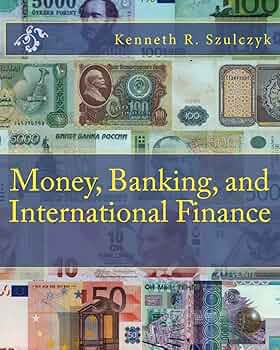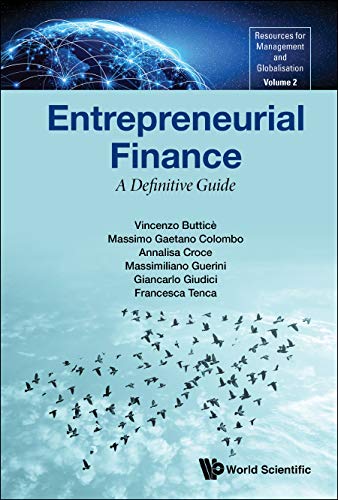Description
In today’s interconnected world, the dynamics of money, banking, and international finance play a crucial role in shaping economies and financial markets. “Money, Banking, and International Finance: Understanding the Global Financial System” is an insightful ebook designed to provide readers with a comprehensive understanding of the critical global financial system’s concepts, structures, and functions. Whether you’re a student, finance professional, or someone interested in the workings of the financial world, this guide thoroughly explores how money flows, how banks operate, and how international finance impacts global economies.
Key Topics Covered:
- Introduction to Money and Financial Systems: Explore the fundamentals of money, its functions, and the evolution of financial systems. Learn about the role of money in the economy and the different types of economic systems worldwide.
- The Role of Banks in the Economy: Understand banks’ critical role in the financial system. Learn about the functions of commercial banks, investment banks, and central banks and how they contribute to economic stability and growth.
- Money Creation and Monetary Policy: Discover the processes of money creation and the mechanisms of monetary policy. Learn how central banks manage the money supply, control inflation, and influence interest rates to achieve economic objectives.
- Financial Markets and Instruments: Explore the different types of financial markets, including money markets, capital markets, and derivatives markets. Learn about various financial instruments, such as stocks, bonds, and options, and how they are used in investment and risk management.
- Banking Regulations and Risk Management: Understand the importance of banking regulations and risk management practices. Learn about regulatory frameworks, capital adequacy, and measures to prevent financial crises and ensure the banking system’s stability.
- International Financial Institutions: Gain insights into the role of international financial institutions such as the International Monetary Fund (IMF), World Bank, and Bank for International Settlements (BIS). Learn about their functions, goals, and impact on global financial stability.
- Exchange Rates and Foreign Exchange Markets: Explore the concepts of exchange rates and foreign exchange markets. Learn about different exchange rate regimes, currency valuation, and the factors influencing currency fluctuations.
- Global Financial Crisis and Systemic Risk: Examine the causes and consequences of global financial crises. Understand the concept of systemic risk, the impact of financial crises on the global economy, and lessons learned from past financial turmoil.
- International Trade and Finance: Learn about the relationship between international trade and finance. Explore concepts such as trade balances, capital flows, and the impact of trade policies on financial markets and economic growth.
- Emerging Markets and Global Financial Integration: Learn about the dynamics of emerging markets and their role in the global financial system. Also, learn about the opportunities and challenges of investing in emerging economies and the effects of global financial integration.
- Financial Innovations and Technology: Explore the impact of financial innovations and technology on money, banking, and international finance. Learn about fintech, digital currencies, and blockchain technology and their implications for the future of finance.
- Case Studies and Real-World Applications: Gain practical insights into financial systems and banking practices through case studies and real-world examples. Learn from the experiences of different countries and financial institutions.
- Future Trends in Money and Finance: Stay informed about emerging trends and developments in the financial world. Explore topics such as the evolution of monetary systems, the future of banking, and the impact of technological advancements on finance.







Shehu –
“Money, Banking, and International Finance provided me with an unparalleled understanding of the complex world of finance. Its comprehensive explanations, clear examples, and insightful case studies illuminated concepts ranging from monetary policy to international trade. The book’s logical organization and engaging writing style made it a pleasure to read. As a student, it transformed my understanding of the financial system, and as a professional, it has become an invaluable resource for ongoing learning and decision-making.”
Ibrahim –
“Money, Banking, and International Finance” is an essential textbook for students of economics and finance. The authors provide a comprehensive and up-to-date overview of the global financial system, from the basics of money and banking to the intricacies of international finance. The book is well-written and engaging, with clear explanations and numerous examples. The authors also provide a strong theoretical foundation, which helps students understand the complexities of the financial system. Overall, this book is an excellent resource for anyone who wants to learn more about money, banking, and international finance.”